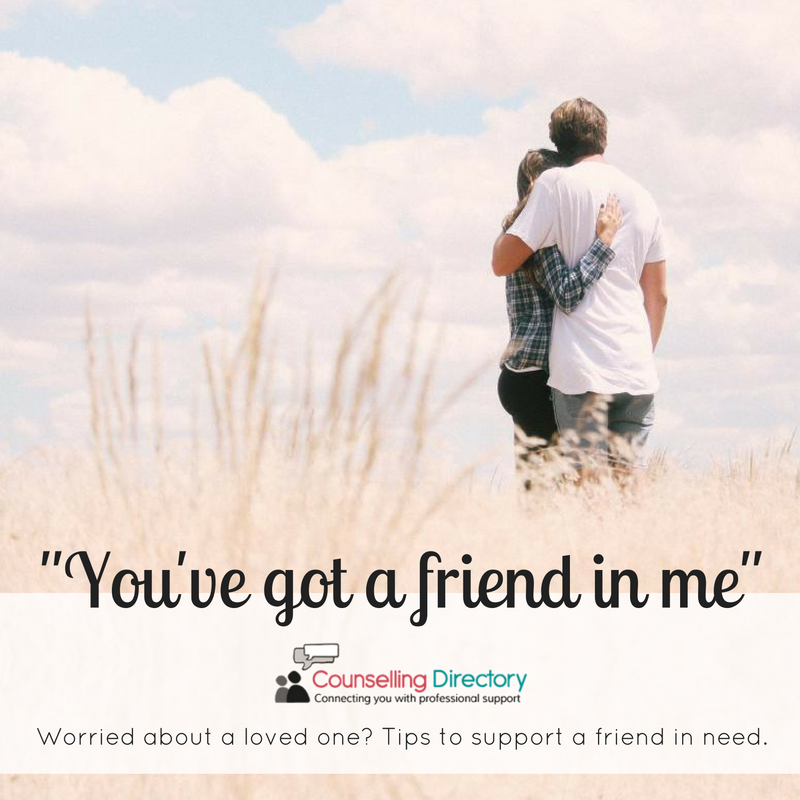“You’ve got a friend in me”
Worrying about a friend can be especially tough if you’re young. What can you do to help someone when you don’t understand what they’re going through?

No matter what age, when confronted with a friend in need, we look to ‘a grown-up’ for support, but what can you do when this isn’t an option?
If your friend has come to you for support, there are a number of things you can do to help them and show that you care. Whether you have gone through a similar situation, or have never experienced such sadness, you can be there for them.
What can you do to help?
Whether your friend has had a loved one pass away; are experiencing illness or a condition themselves, going through a time of self-exploration or they are being bullied/struggling at school or college, the first thing to do is to remind them that you are there.
Going through a hard time can be very lonely. Your friend may feel like they are the only person in the world to feel this way, and that there is no way out. Give them the opportunity to talk about how they feel and listen. They may not want you to offer advice, so just listen. Simply getting it off their chest can make them feel better.
Make them smile. Distraction is always a good thing – if they are spending more time alone or are becoming less social than normal, offer to take them out one-on-one. Do things that make you both laugh and smile, this can help remind them that they won’t feel sad forever, it’s just a bump in the road that will make them stronger.
If you want to talk to them about what’s going on, but are not sure where to start, write a letter or pull them aside and ask how they are. Be sure to do this privately as they may not want to draw attention, but asking if they are OK can often remind them that people care. They may react in a way that shocks you, try to brush it off. People react differently when their mind is elsewhere.
If there is something specific affecting them, do your research. If you are concerned, looking further into what they may be feeling can help you understand. Improving your knowledge on the situation can help you know what to do, and what support is available.
Similarly, if you’re really worried about them, talk to someone. You don’t need to tell the person your friend’s name, but getting advice from a professional, a teacher, a doctor or a parent can help you know what to do next. Helping a friend can be a huge responsibility, so be sure to take care of yourself first.
Offer to be with them every step of the way. If it comes to a point where your friend needs extra, professional support, be with them. This can be a big, nerve-wracking step for them, so be there to hold their hand and help them on the journey.

Find a therapist dealing with Young people's counselling
All therapists are verified professionals


